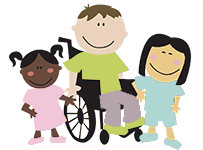What Are the Early Signs of Apraxia? How to Overcome It?
[vc_row][vc_column][vc_column_text] What Are the Early Signs of Apraxia? How to Overcome It?
What Are the Early Signs of Apraxia? How to Overcome It?
Apraxia is a neurological condition that isn’t well understood currently. This also means that treatment modalities haven’t been fully investigated either. As such, therapists are still trying to determine what approach will work best. Partially this is because there’s still some debate as to what symptoms and characteristics merit an apraxia diagnosis.
Neurologists realize that when someone has apraxia, they will find it difficult, if not impossible, to make certain motor movements. This isn’t because their muscles are malformed because their muscles are quite normal. There are various forms of this disorder.
Understanding Orofacial Apraxia
When someone has orofacial apraxia, they can’t voluntarily perform certain movements that involve their facial muscles. An example of this happens when a person is unable to lick their lips or wink their eyes.
Understanding Apraxia of Speech
When someone has apraxia of speech, they’ll find it difficult, if not impossible, to move their mouth and tongue so that they can speak. This isn’t because a person doesn’t want to speak or that the muscles in their mouth or their tongue can’t physically form the words they’re trying to say.
Treating Apraxia
Sometimes apraxia will spontaneously resolve itself. However, this won’t happen when your child has developmental apraxia of speech. This form of apraxia will require treatment. The treatment’s effectiveness will depend upon the nature of the apraxia – something that varies from one person to the next. To get the best results, the treatment plan must be developed to meet each individual’s specific needs. However, treatment will typically involve meeting with a speech-language pathologist three to five times each week. As a parent, you’ll also want to work with your child on the skills they’re developing in these sessions.
Improving Speech Coordination
When your child works with a therapist they’ll be repeatedly practicing forming and pronouncing various sounds and words. They’ll also practice stringing together the sounds that make a speech. This involves a variety of multisensory approaches, including watching themselves in a mirror and touching their face while speaking.
Sometimes in truly severe cases of apraxia sign language is taught so the child can be clearly understood. However, most therapists will still have the child attempt to say the words they’re signing so they can practice making any necessary movements with their mouths.
If you live in Plano, Texas and are concerned that your child may have apraxia, you should contact Speech & OT. Over the years they’ve helped many children overcome this challenge in their lives. They can help your child too, so reach out to them today.[/vc_column_text][/vc_column][/vc_row]
